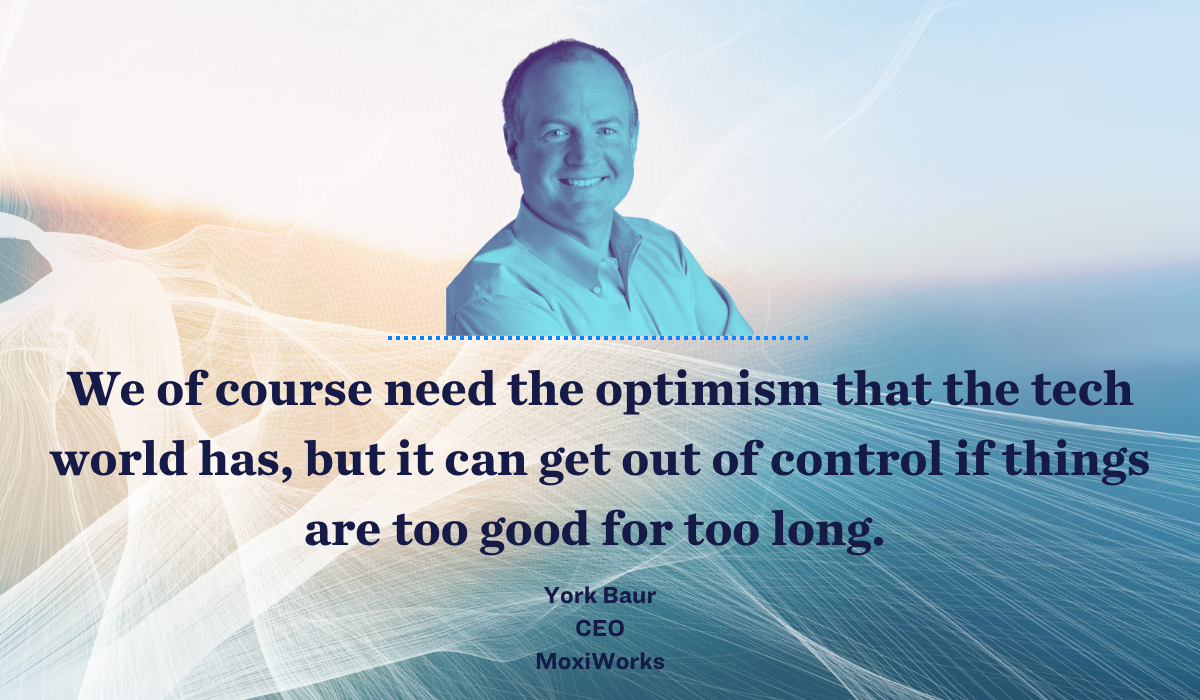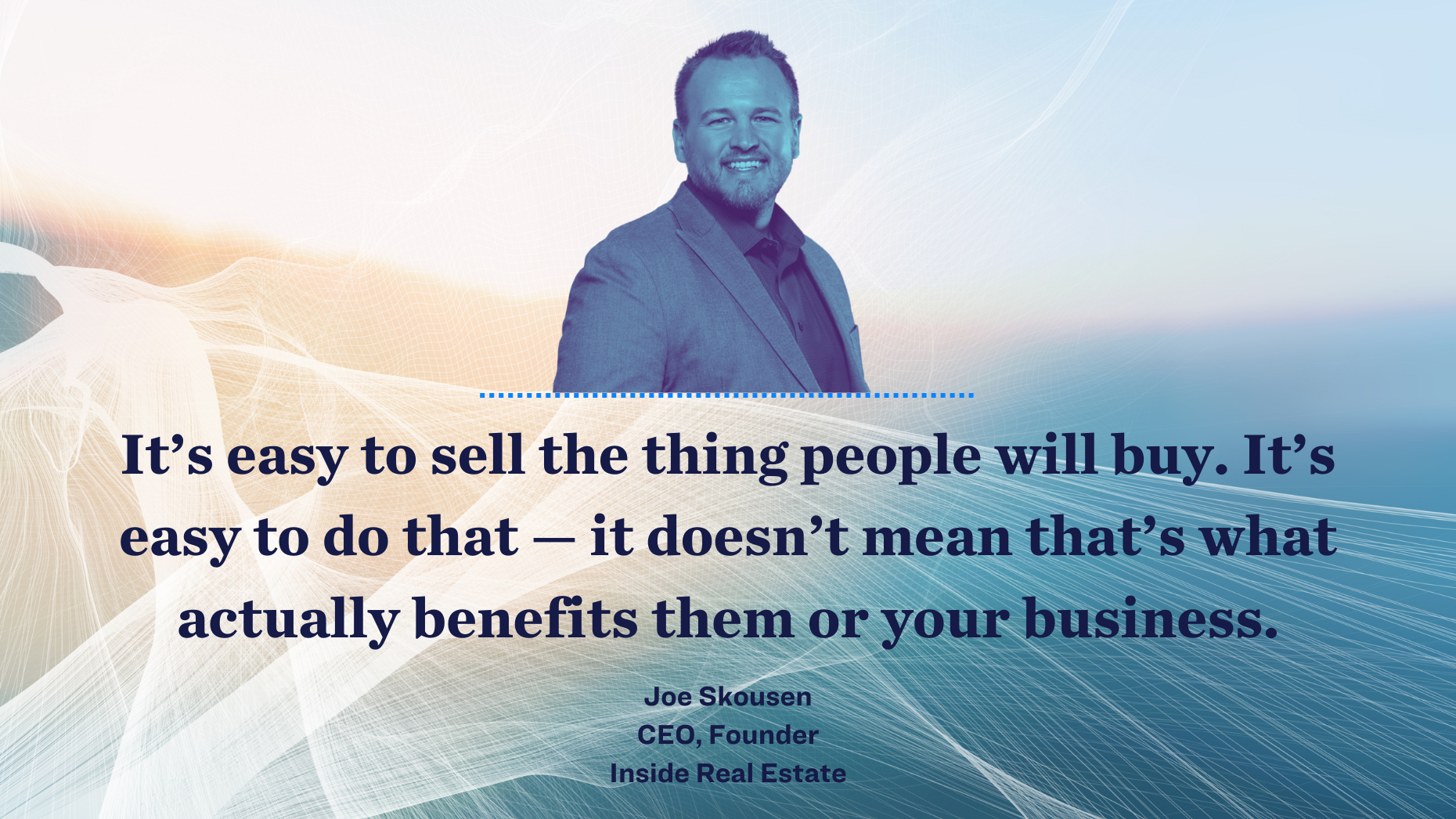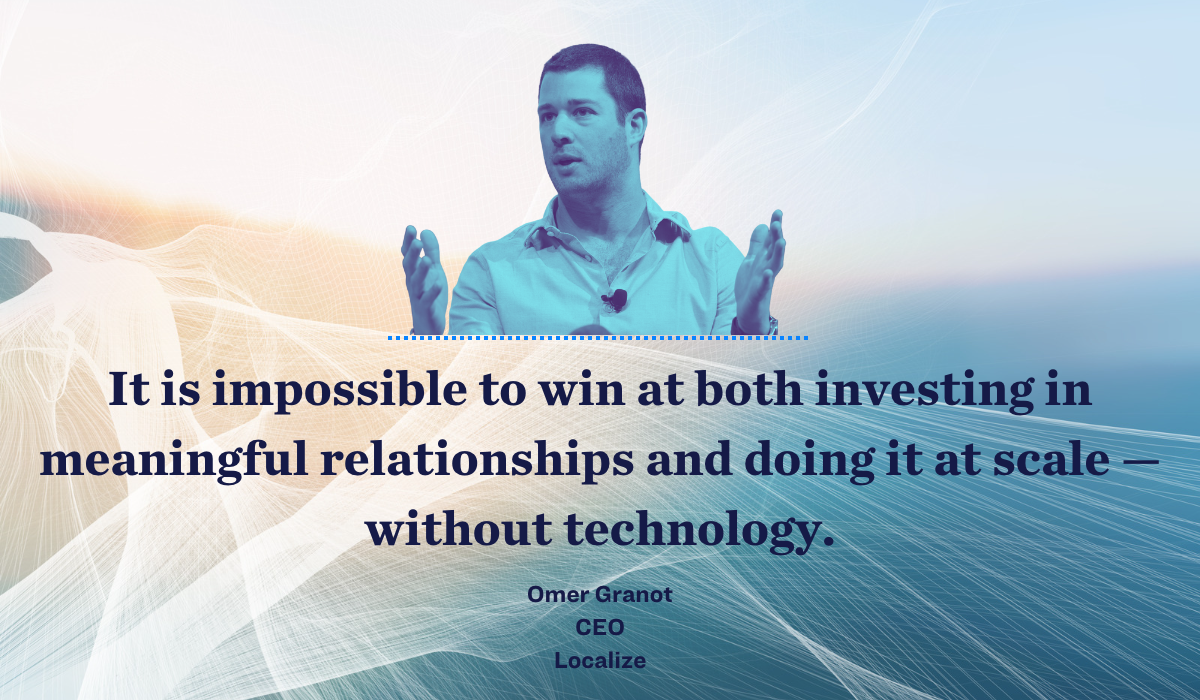This report is available exclusively to subscribers of Inman Intel, a data and research arm of Inman offering deep insights and market intelligence on the business of residential real estate and proptech. Subscribe today.
The money valve fueling entrepreneurs behind a decade or so of innovation in real estate sputtered last year, then threatened to shut off entirely amid ongoing economic uncertainty, inflation and skittishness on Wall Street.
Property technology companies — or proptechs — backed by venture capital raised just shy of $20 billion that year, down a whopping 38 percent from 2021, according to one study by The Center for Real Estate Technology & Innovation.
But truth be told, $20 billion is still a lot, and interest in proptech continues to surge among investors. Fifth Wall closed an $866 million fund focused on that space late last year, an astonishing sum that Clelia Peters of ERA Ventures reminded attendees at Inman Connect Las Vegas, would “need to be deployed.”
In other words the money is there, it’s still flowing, and it has more outlets than ever before, expanding well beyond CRMs, online search and 3-D tours. But with all forms of growth, pressure points are part of the deal or at least stages of uncertainty that can be tough for entrepreneurs to endure.
Some, like RentSpree CEO Michael Lucarelli, faced a steep climb while growing the end-to-end rental management platform while supporting its customer’s homeownership journeys. Technology-forward mortgage provider Better, meanwhile, stumbled terribly with a poorly executed staff reduction, yet remains publicly committed and seemingly on track to fulfill its promise to the market of a quick, equally secure mortgage experience.
Inside Real Estate, a well-established business and marketing software company, chose to forge beyond its comfort zone by acquiring competitor BoomTown earlier this year, an exciting step that, no doubt, will challenge its internal structures and test its reputation with customers. Success, it turns out, isn’t any easier to manage than failure.
It’s with those challenges in mind that Intel asked 10 property technology entrepreneurs to answer tough questions on the minds of their colleagues and customers, many of them large, national brokerage brands. In a number of cases, Intel communicated directly with the individuals, working with public relations representatives only to secure their attention.
What resulted from those interviews is an assortment of entrepreneurs who spoke plainly to Intel about their struggles to balance their passion for innovation with difficult decisions about staffing, poor adoption rates and a hard-to-predict post-pandemic market that simultaneously desires tech solutions while pulling back funding and other resources amid economic uncertainty.
Here’s what we heard.
To rent or own?
As if the searing pandemic market wasn’t enough to push buyers out of the market, resulting federal intervention catapulted interest rates, sending the market face-first into a slump. Countless aspiring homebuyers now sit sidelined, waiting on reluctant sellers to find some sort of reason to give up a 3 percent mortgage rate.
RentSpree has been pushing its end-to-end rental business platform into the laps of multiple listing services around the country in part to remind cynical agents exactly where future clients start their homebuying journeys — in apartments.
Intel sought to get more than a software pitch from Lucarelli, so we asked him what he would say to a person who sees nothing but leases in their future, and in turn, offer agents the basis for a compelling pitch.
Intel: What would you tell a renter who feels dejected by the state of the real estate market?
Lucarelli: I would say to play the long game. I’ve been a renter for the past 12 years, ever since I graduated college.
Even though that has been a long time to rent, I’ve always had a long-term goal to be a homeowner. To make progress toward my goal, I’ve been willing to forego paying high rents for luxurious, spacious apartments. Instead, I’ve lived with roommates and in smaller and often older properties for that entire time.
It was hard to resist the temptation to splurge on a nicer rental, but the sacrifice has helped me save a lot more toward becoming a homeowner. I knew the more I was spending on rent, the less I could allocate toward investments. As a result, I’ve recently been able to become a first-time homeowner.
Had I lost discipline regarding my lifestyle, I would have delayed my purchase by years. The only thing I wished I had done a bit better and would advise anyone renting today to do is to track my cash flow more diligently.
Facing uncertainty
Proptech companies have been battered around like pickleballs at retirement communities the last 12 months, watching real estate sales figures to gauge staff reductions. It has been a tough few quarters for a number of big names in brokerage and technology, including CoStar, Realtor.com and Redfin, among many others.
However, it’s not quite that terrible. News of job cuts is always elevated in the zeitgeist as the second coming of 2008. Inman reported that, overall, the real estate sector is doing more than treading water, enjoying a monthly increase in real estate jobs of 8,800 on a seasonally adjusted basis, according to a report by the U.S. Bureau of Labor Statistics.
York Baur leads MoxiWorks, a marketing and business software company known for its many brokerage partnerships and proptech integrations, and unfortunately, also a few recent layoffs.
It can’t be easy for a leader in his position to absorb news about a lagging market and appear upbeat on every Zoom call. So we asked him about it.
Intel: What does a proptech CEO think about when the sales market is slow?
Baur: CEOs who have seen these economic cycles before are thinking about getting back to basics. The tech industry is generally one of the shiny objects that always gets ahead of itself in the late stages of an economic expansion period. We of course need the optimism that the tech world has, but it can get out of control if things are too good for too long.
In a slow market, CEOs need to focus on taking care of their customers and driving productivity for agents and brokerages. Customers want their problems solved and for partners to help make their businesses better, especially in a downturn. Nothing fancy, just good old-fashioned return on investment.
Selling proptech
Proptech is ripe with redundancy. Countless options for customer relationship management, digitizing transaction paperwork and sourcing leads exist, among other business needs.
Thankfully, the industry tends to sniff out those vendors who either react too quickly to a trend (home showing management) or come in laterally with outside business success, only to realize that knowing how the industry functions is actually critical to succeeding in selling technology to it. While some niche companies do prevail, rising in the space isn’t easy, nor is finding ways to differentiate your value proposition in a sea of sameness.
Joe Skousen, founder and CEO of Inside Real Estate, echoed Baur’s sentiment that it’s too easy to sell shiny objects to people. He admitted that upon his start in proptech, that’s what he did. So what has he learned?
Intel: If you started your company today, what would you do differently?
Skousen: At first, we fell into what a lot of people fall into, we sold a lot of shiny objects.
It’s easy to sell the thing people will buy. It’s easy to do that — it doesn’t mean that’s what actually benefits them or your business. My view at this stage is when you look at most of the businesses I compete with in the space, I would say the majority of them sell what people will buy, rather than what everybody needs or what their strategy dictates.
I’ve learned though that true customer value and true business value come from being disciplined against your strategy and determining what really is going to move the needle for them, even if it takes more work and more time to get there.
It’s a day-to-day challenge, literally. Every customer type has their own flavor and version of it [the product] and you get asked for that every single day you’re in business. It’s a principle, and once we learned and incorporated that principle into what we all do, both our results and our customers’ results increased dramatically.
Selling what’s next
Home sales are not the only economic metric taking a few punches these days. At one time white-hot and talked about more often in Silicon Valley than Elon Musk’s latest tweet, cryptocurrency and everything related to it, seemingly disintegrated overnight at the hands of yet another young billionaire in over his head.
Getting pulled down with the collapse of FTX was any real hope of Web3 technologies underwriting real estate deals, at least for the near future. Even more impactful is what it did for the reputation of blockchain technology — a truly change-inducing data storage and empowerment technology with untold potential for real estate — among the masses.
One company burdened with convincing the industry that the secure decentralized ledger system remains highly relevant is Propy, which in May of 2022 announced its new blockchain-based title and escrow product.
“The escrow and title business that we are launching will have less manual work,” Propy CEO Natalia Karayaneva told Intel, adding that the technology should bring transactions closer to the “click-to-close” experience many real estate players have been chasing for years.
But that was before FTX.
Intel: You deal in buying real estate with crypto and NFTs, which have been hammered in the public financial markets. What do you want people to know?
Karayaneva: If I was asked this question in the pre-SVB fail times, I’d have a more pessimistic answer like this: “It is a second ‘crypto winter’ for us and every time we are going out from it agents and real estate leaders are paying more attention to web3. All we want people to know right now: Blockchain is here to stay.”
However, the new answer [as it relates to] Americans’ distrust of banks and diversifying in bitcoin is the following: 2021 saw 10 percent of crypto usage amongst first-time homebuyers, it will become 30 percent with the initiated due to bank runs [and] a bullish crypto market. Consumers will push agents for this awareness.
Also, be aware that the next big trend similar to the magnitude of “ICOs” and “NFTs” will be “RWA backed DeFi” — and this is the most healthy blockchain trend that will uplift real estate as the underlying asset. Don’t miss that boat.
We also want agents and consumers to know that there’s a way to avoid wire fraud and title fraud and close even traditional deals securely and faster, and it is via title and escrow processes on blockchain.
This is particularly relevant at a time when trust in traditional financial systems is at an all-time low. By utilizing blockchain technology, we can create a more secure and transparent financial system that is accessible to everyone.
Lack of proptech adoption
Even though brokers do all they can to leverage technology to better business, ensuring adoption and thus ROI on that commitment, is no sure thing. Many agents come to a brokerage already entrenched with a CRM and teams are often allowed to build out their own tech stacks.
There’s also a good deal of cynicism about the value of technology to the industry, rooted in the idea that proptechs want to “replace the agent,” a stigma that largely came to be upon the emergence of iBuyers.
Brokers should be concerned about how agents can meet the needs of their consumers without recognizing how software trends, device proliferation and advancement of technology in other industries are affecting how consumers choose business partners.
Intel asked Omer Granot, CEO of Localize, if the real estate world should be worried. He sent us a snippet from a 2012 story from The Wall Street Journal on the demise of Eastman Kodak:
Kodak followed a template used by many incumbents facing technological challenges to their hegemony.
First, they try to ignore the new technology hoping it would go away by itself.
Then they deride it using various justifications (too expensive, too slow, too complicated etc). After that, they try to prolong the life of the existing technology by attempting to create synergies between the new technology and the old (like Photo CD). In doing so, they keep delaying any serious commitment to the new order of things.
Intel: Is there something you’ve been trying to tell the industry that it’s not hearing?
Granot: Yes. Here are my two cents on what we’ve been saying for a long time, and is hard to get through.
Real estate is about to have a “Kodak Moment,” but not in a good way. Rather, in the sense of, if you don’t adapt and change, you will be left behind and become obsolete. It is impossible to win at both investing in meaningful relationships and doing it at scale — without technology.
The biggest obstacle to agents’ success in scaling is their ego, the belief that they can do everything on their own and that the way they’ve been doing it for the past 30 years is the best and optimal way. Technology provides an opportunity to unlock tremendous potential, but egos prevent agents from taking advantage of it.
Specifically, you can be more responsive or fail to respond and follow up with clients; provide realtime, relevant service or be slow and inconsistent; be perceived as smarter and more on top of your game with smarter recommendations and implicitly learning by measuring users’ behavior and [leveraging] many other opportunities by using deep technologies.
Data-driven real estate
The term, “built environment,” refers to physical real estate’s relationship with data and technology, specifically as it relates to processing information about a residential or commercial property.
Marketing companies, investors, lenders and the construction industries are all finding ways to use information about property to be better at sales, marketing, remodeling, appraisals and even decorating — all cases that can improve the way agents sell.
Plunk uses rich property data and deep analytics to scope home repair costs against ongoing market metrics. This isn’t an every-90-day update. It integrates active consumer activity and dynamic housing data to get as close as possible to real values before and after presale remodeling. They call it dynamic valuation, and it means a market report from 20 days ago is now obsolete.
Intel asked Plunk CEO and co-founder Brian Lent to tell us more.
Intel: How is access to data changing the way people interact with the built space, and how far can it go?
Lent: There is no end to what we can do with access to the right data. As the largest asset class in the world, the residential real estate industry is poised to reap substantial benefits from the “data revolution,” and we’ve barely scratched the surface. Data is the energy of the 21st century.
As digital platforms increasingly integrate with the built environment, there is growing potential for personalization and customization. Smart home technology is making it possible for homeowners to tailor their living spaces to suit their specific needs and preferences, enhancing comfort and convenience.
Data can play a vital role in driving green practices in the built environment. Access to building performance data can help developers and property managers identify areas where energy usage can be optimized, leading to more efficient buildings and lower carbon emissions.
Data is streamed by billions of connected mobile devices, and this data provides unique and incredibly rich opportunities to learn and build truly real-time, data-driven experiences that can be personalized to each user for their benefit.
And of course … with great power comes great responsibility, and the same holds true for the burgeoning data revolution. As we grapple with the growing power of data, concerns around privacy, security, bias and equity will need to be addressed.
From protecting sensitive homeowner data during transactions to ensuring equitable access to housing, industry stakeholders will have to strike a delicate balance between leveraging data’s full potential and upholding ethical standards.
Fintech’s time?
There is tremendous potential in what a shorter escrow can do for the homebuying experience. It’s long, vague and more complicated than it should be, and the lending process is mostly to blame.
Transaction management systems can help keep agents and clients informed, but those solutions can only run when the lender provides information. There is hope in a rising tide of financial technology companies that the process for approving and closing a loan can match consumer expectations of pace and transparency.
But is faster always better? We asked Vishal Garg about it, who heads up an aptly named fintech.
Intel: Innovations in fintech might be the way we finally shrink the real estate transaction, but are there risks in expediting that process?
Garg: Digital lenders are redefining the real estate process.
Time is a scarce commodity, and aspiring homeowners expect a faster, easier and cheaper home buying experience than ever before. Until recently, buyers waited an average of 51 days to close on mortgages, forcing them to spend extra money on unnecessary fees and potentially lose out on their dream homes.
Thanks to technology, speed is the new standard for agents and buyers alike who demand the flexibility of around-the-clock online dashboards and the convenience of faster closing times.
However, while speed is an important piece of the puzzle, it can create inequalities in the mortgage lending process if not handled properly. If faster services are only available to a small segment of the population, then a gap is created between the individuals who can access these tools while everyone else is left out.
As a result, we’ve focused our efforts on creating products that leverage technology to ensure that the mortgage lending process is not only fast but accessible to people from all demographics.
Marketing in a down market
The transactional nature of real estate means agents have to be savvy money managers. It’s not easy to stabilize a business when its revenue fluctuates so dynamically.
Compounding that challenge is the prevailing sentiment that marketing is a luxury for many agents, an expenditure better put toward buying leads than earning them. Until an agent reaches the point where referral business is common, they can’t survive on hope and book club friends for long, nor can their brokers.
One of the more affordable ways to begin marketing is email, which has grown into a sophisticated component of modern branding and sales. But it can be done well for less, something email marketing company Happy Grasshopper helps agents do. Here’s its president, Dan Stewart.
Intel: What arguments would work for a broker who needs to encourage his agents to commit more money to marketing during uncertain markets?
Stewart: Investing in marketing during uncertain times isn’t just a good idea, it’s essential. Doing nothing and waiting for the market to rebound is a costly mistake agents can’t afford to make. By using high-ROI strategies, like building relationships with existing clients and re-engaging with old leads, they can set themselves up for success both now and in the future.
It’s time to step up and firmly guide your agents’ marketing efforts. If they don’t invest in marketing, they risk losing valuable business to their competitors. Referral business is too important to leave to chance, and your agents need to be proactive in staying top of mind with past clients and potential leads. By investing in marketing now, they can position themselves for success and ensure a steady stream of referrals, even during uncertain times.
Effective marketing isn’t just a luxury, it’s a necessity. Agents can’t afford to sit back and wait for transactions to come to them. It’s time to hold your marketing investments accountable and make sure you’re doing everything possible to succeed, even in a down market.
Venture capital
Venture capitalists are also becoming much more than rich uncles, as many of them are one-time proptech CEOs. David Anderson, who founded and sold CRM LionDesk, is now a partner at Venture MLS, the first MLS-founded capital source for technology companies. Trulia Co-founder and former CEO Pete Flint and Zillow Co-founder and one-time CEO Spencer Rascoff are also active in the VC space. This aligns clearly with comments from Fifth Wall’s Brendan Wallace, who said proptech has matured.
“Those more mature businesses can become consolidators, companies that can drive M&A in the space, and the landscape has become more broad and sophisticated and nuanced,” he said.
Intel wanted to know what other CEOs might think about the growth of their space, but more specifically, what they might do if in a position to back a startup. Chris Drayer, founder and CEO of Revaluate, was happy to chime in. His company specializes in using A.I. to analyze consumer relocation decisions, among other buyer and seller behaviors.
Intel: If you had a big block of VC money, on what proptech category would you focus?
Drayer: I believe that housing is a right. People in my community and yours need help every day with housing.
In our industry, we tend to focus on multimillion-dollar deals as it is commission based, but if the government changes the way transactions are paid, I’d look to invest this “block of VC money” in lower-end transactions that deal with housing affordability and the data and tools around helping people in need. That will be the majority of transactions. Not because it’s sexy and going to be hugely profitable (but it may), but because I think we ought to help with one of the worst parts of our industry and for those who need to access housing the most.
What’s needed in proptech?
There’s no shortage of product redundancy in real estate technology, CRM solutions likely being the most prevalent. A lot of transaction tools and way too many options for marketing exist. Competition is good, but combined with the lack of adoption many products suffer, user churn starts to take a toll. Not only do brokerages suffer from lack of ROI on proptech commitments, agents do themselves no favors by switching vendors so often.
Intel wanted to know if the proptech space is suffering from an embarrassment of riches and looked to Luxury Presence CEO and founder Malte Kramer for his take on it.
Intel: What category of proptech could use some contraction?
Kramer: Proptech has seen more financial innovation than technological innovation over the last 10 years, leading to some questionable business models. Now, given the higher cost of capital, there’s a renewed focus on building tools that make the day-to-day of professionals in our industry easier and the consumer experience more enjoyable. That’s something I’m excited about!
I expect to see continued consolidation of lead gen, marketing and website tools. There are too many outdated, disconnected point solutions in our space. During down markets there is always a flight to quality, and agents will seek out a few companies building high-quality products.























